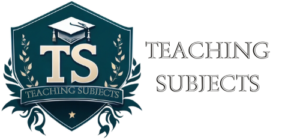Introduction
The importance of diverse skill sets in higher education cannot be overstated in today’s rapidly evolving educational landscape. Mastering a variety of skills not only enhances academic performance but also significantly boosts employability in highly competitive job markets. Among these, analytical skills are essential for academic and professional success. According to recent studies, students who engage in analytical thinking activities are 40% more likely to achieve higher grades than their peers. This document delves into analytical skills, exploring why they are vital and how they can be developed effectively.
What Are Analytical Skills?
Analytical skills are the ability to collect and process information, think critically, and solve problems. These skills enable individuals to break down complex situations or problems into smaller, more manageable components to understand and address them effectively. Unlike creative skills, which focus on generating new ideas and thinking outside the box, analytical skills are more concerned with evaluating information methodically and making data-driven decisions. Technical skills, on the other hand, involve the expertise required to perform specific tasks or operate particular tools and technologies. While creative and technical skills are valuable, analytical skills are unique in their emphasis on rationality, logic, and evidence-based reasoning.
Components of Analytical Skills
Analytical skills encompass several key components that enhance one’s ability to think deeply and solve problems efficiently. Critical thinking is at the heart of analytical skills, involving objectively analyzing and evaluating an issue to form a judgment. Problem-solving skills enable individuals to identify solutions to challenges systematically and effectively. Data interpretation is another vital aspect, requiring the ability to analyze data patterns and draw meaningful conclusions. Research capabilities involve finding, evaluating, and using information relevant to a question or problem. Finally, attention to detail ensures that all aspects of a task are considered and executed with precision, minimizing errors and enhancing the overall quality of the outcome. These components make these skills indispensable in academic and professional contexts.

Why Analytical Skills Matter
Academic Benefits
Analytical skills significantly enhance understanding and retention of complex subjects, enabling students to grasp intricate concepts and theories more easily. These skills improve performance in exams and assignments by allowing students to approach questions methodically and provide well-reasoned answers. These skills help students gather, evaluate, and synthesize information, ultimately enriching their academic work and contributing to higher academic achievement.
Professional Advantages
In professional sectors, employers across various fields and industries highly seek analytical skills. These skills enhance decision-making and strategic thinking in the workplace, enabling professionals to tackle challenges with a logical and evidence-based approach. With strong analytical capabilities, individuals can increase their adaptability to different job roles and industries, making them valuable assets to any organization and opening diverse career opportunities.
Personal Development
On a personal level, analytical skills improve everyday problem-solving abilities, helping individuals navigate daily challenges more effectively. These skills encourage logical thinking and informed decision-making, fostering a mindset that values evidence and reason. Moreover, these skills boost confidence in tackling complex issues, empowering individuals to approach difficult situations with a clear and rational perspective, ultimately enhancing their personal growth and development.

Developing Analytical Skills in College
In the Classroom
Participating in discussions and debates is one of the most effective ways to enhance analytical skills in a classroom setting. These activities encourage students to think critically, articulate their thoughts clearly, and consider diverse perspectives. Engaging in group work and collaborative projects further refines these skills by requiring students to break down complex problems, distribute tasks, and synthesize different viewpoints into coherent solutions. Additionally, taking courses emphasizing critical thinking and analysis, such as philosophy, logic, and advanced mathematics, equips students with the theoretical foundation and practical techniques to excel in analytical tasks.
Outside the Classroom
Extracurricular activities, such as joining clubs and societies, offer students valuable opportunities to apply their analytical skills in real-world contexts. Participation in debate clubs, for instance, sharpens the ability to construct and deconstruct arguments, while analytical skill sets are advantageous in leadership roles within student organizations. Internships and part-time jobs that require analytical thinking also provide hands-on experience, allowing students to solve real-life problems and make informed decisions under professional guidance. Reading extensively and staying informed about current events and trends further enriches one’s perspective and fosters a habit of continuous learning and critical evaluation.
Practical Tips
Students should practice analyzing case studies and scenarios to develop their skills effectively. This exercise enhances problem-solving abilities and prepares students for real-world challenges they may encounter in their careers. Engaging in puzzles, games, and activities that stimulate the brain, such as chess or strategy-based video games, can also be beneficial. Moreover, seeking feedback from professors and peers on analytical assignments provides valuable insights into one’s strengths and areas for improvement, facilitating continuous growth and refinement of these essential skills.
Real-Life Examples of Analytical Skills in Action
Healthcare Industry
Analytical skills are crucial for diagnosing and treating patients effectively in the healthcare industry. Medical professionals rely on these skills to interpret lab results, medical imaging, and patient histories to make informed decisions about patient care. For example, a doctor must analyze a complex set of symptoms and test results to identify the underlying illness and determine the best course of treatment. Additionally, healthcare administrators use analytical skills to manage healthcare data, optimize operational efficiencies, and improve patient outcomes through evidence-based decision-making.
Financial Sector
The financial sector highly values analytical skills for managing investments, assessing risks, and making strategic financial decisions. Financial analysts, for instance, utilize these skills to examine market trends, evaluate financial statements, and predict future economic conditions. By interpreting complex data sets, these professionals can provide valuable insights that help organizations make informed investment choices and minimize risks. Furthermore, financial planners use analytical skills to devise personalized financial strategies for clients, considering various factors like income, expenses, and long-term financial goals to ensure optimal financial health.
Conclusion
In conclusion, developing analytical skills during college cannot be overstated. These skills enhance academic performance by enabling students to tackle complex problems, conduct thorough research, and provide significant professional advantages by improving decision-making and strategic thinking in the workplace. Analytical abilities foster personal development, assisting individuals in navigating everyday challenges with confidence and rationality. Students can refine these essential skills by participating in classroom activities, engaging in extracurricular pursuits, and practicing analytical exercises. Therefore, it is imperative for students to actively work on improving their analytical abilities to ensure their success in both their academic and professional endeavors.















